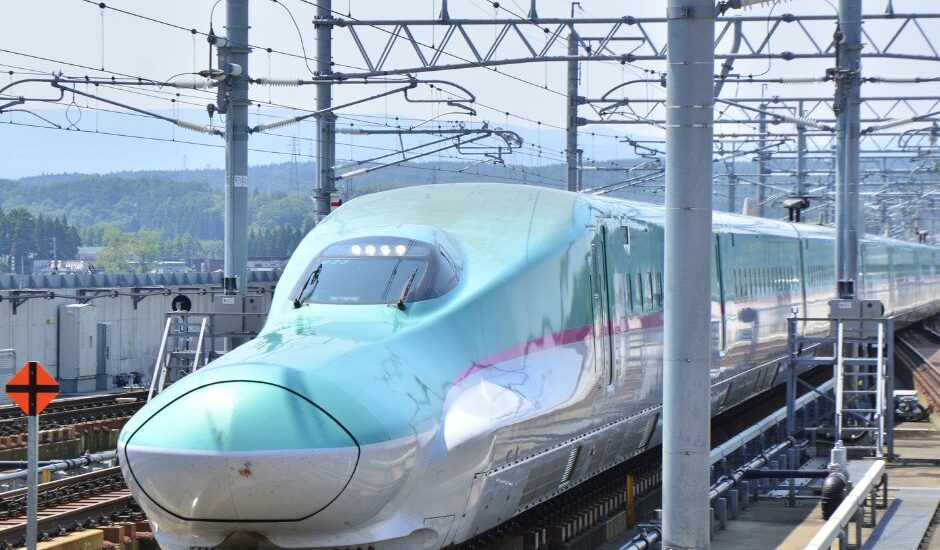When it comes to exploring a new country for vacation, transportation is often something that travelers budget so they can spend more on other things like food and shopping – Japan is no exemption.

Whether it’s your first time in Japan or a repeat visitor, Tokyo is not the only place you’ll want to visit. One of the most cost-effective ways to get around Japan is by purchasing a pass that will let you ride all the major lines without having to purchase a ticket every time.
What’s the JR Pass
Short for Japan Rail, the JR Pass is a transportation scheme offered by the six companies (JR East, JR West, JR Central, JR Hokkaido, JR Shikoku, and JR Kyushu) that make up the Japan Railways Group. Given that the travel and tourism industry is a big thing in Japan, the world’s third-largest market after the US and China, companies make an effort to meet travelers’ needs.

Who can get a JR Pass
In the past, JR passes could only be purchased from abroad as they were exclusively available to tourists or foreigners. Travelers would buy the passes online or through a partner agency or sales office. Nowadays, tickets can be purchased internationally and in Japan in case you need some last-minute transportation across the country.
Why get a JR Pass
First-time visitors are often overwhelmed with Japan’s railway system and equally confused that the north, south, east, and west exits in Shinjuku station all point in the same direction. One of the perks of getting a JR Pass is making your travel more efficient and less confusing because it eliminates multiple transfers for long-distance travel and helps you from getting lost.
The price of a JR Pass depends on the duration of stay, from 7, 14 and 21 consecutive days. The starting price for an ordinary 7-day pass is ¥33,610 and ¥44,810 for a green car. The price is ¥66,200 (ordinary) and ¥91,670 (green car) for 21 days (until March 31, 2023). Children aged 6-11 get a 50% discount on ticket prices.
Eligibility for a JR Pass
As mentioned earlier, a JR Pass is offered only for tourists; therefore, one must have a “temporary visitor” entry status on the passport to become eligible for the pass. When purchasing from overseas, the traveler will receive an exchange certificate which will be converted into the JR Pass upon arrival. Japanese nationals can also buy a JR Pass if they can prove having been permanently living abroad for the past ten years. Japan residents are not eligible for the JR Pass.
The price of exchange certificates are as follows:
Where you can use a JR Pass
The main advantage of getting a JR Pass is its validity on almost all trains operated by the country’s top rail network company. With that said, the pass is valid on most JR trains, including the shinkansen, limited express, express, rapid and local trains.
The JR Pass can also be used on the Tokyo Monorail to and from Haneda Airport, the JR Ferry to Miyajima, local JR buses, and even some non-JR trains that connect to isolated JR Lines. You can check the following site for updated information on the JR Pass.
Another benefit of having a JR Pass is making seat reservations on the trains for free and discounts at JR-affiliated hotels like the Metropolitan, Mets, Associa, and Granvia hotel chains which are found inside train stations.

Green or Ordinary seat?
When purchasing a JR Pass, you have two options: an ordinary or green seat. Treat green seats like a business or first class seat in a plane because they have larger seats and wider foot space. You can also expect fewer passengers in these cars, so if you want an enhanced experience, consider this option at an extra fee.
Where a JR Pass is not valid
Before purchasing a JR Pass, it’s advised to check if your destination uses any of the following train lines: Nozomi trains along the Tokaido/Sanyo Shinkansen, Mizuho trains along the Sanyo/Kyushu Shinkansen, JR trains using non-JR tracks, trains using a special “liner ticket” and special compartments and berths on night trains. These require a supplement fee to use. Furthermore, a JR Pass is not valid on any highway buses.
When a JR Pass is worthwhile
A JR Pass is recommended only if you are planning to travel around Japan, such as from Tokyo to Kyoto, Osaka, and other destinations. The price of a 7-day pass is equivalent to a roundtrip shinkansen ticket between Tokyo and Kyoto, so you can use this as a quick basis when deciding which option to take. The pass pays off if you plan on traveling long distances repeatedly.
If your itinerary only covers a particular region of Japan, then you can pick one of the three passes for convenience: the JR Hokkaido, JR Shikoku, or JR Kyushu Pass. There are more pass types that cover only a specific area of each region if your travel plans are more concise. These are JR Kansai Area Pass, JR Kansai Wide Pass, JR Kansai – Hiroshima Pass, or Alpine-Takayama-Matsumoto Area Tourist Pass.
With your transportation method taken care of, you are now freer to enjoy the beauty and culture of Japan.




